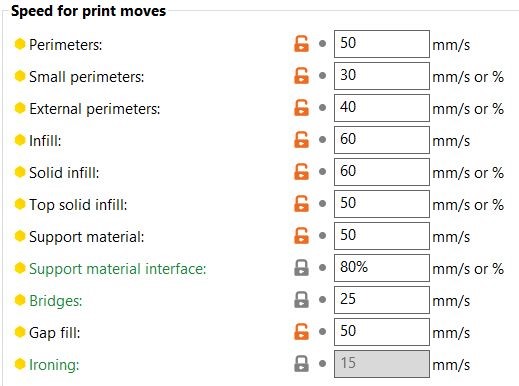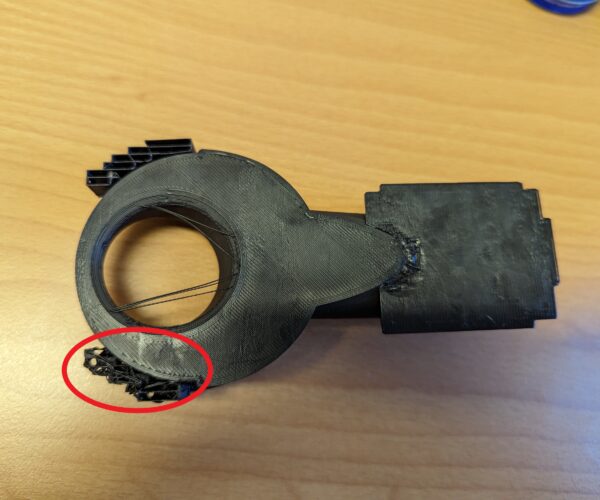Help to choose a water resistant print material
Hi all,
I'm new at printing and just been using PLA for now. However, I have a project that is going to be used in the garden.
I need something that can hold water. I will have multiple parts that fit together, so painting it on the inside is not ideal. I rather have a filament that can handle water.
Outside can be painted to protect from UV, but some UV and heat resistance would be great. It will be left in the partial sun and would be black, (black material or paint), so I would estimate the part may heat up to 60C in a worst case.
I need basically no strength, although it should not flex. There will be very little force applied to the part
Thanks for any advice,
Dom
RE: Help to choose a water resistant print material
Water resistant and holding water is not the same. If all you need is water resistance (and being able to stand up to heat and UV), I'd go with ASA.
But from your description it sounds more like you want to retain water inside, like a vase. Prusa has actually published a couple of articles on this topic: https://blog.prusa3d.com/watertight-3d-printing-pt1-vases-cups-and-other-open-models_48949/ and https://blog.prusa3d.com/watertight-3d-printing-part-2_53638/ you may want to check out. ASA is probably a good choice again but I don't have hands-on experience with trying to print non-leaking stuff.
Formerly known on this forum as @fuchsr -- https://foxrun3d.com/
RE: Help to choose a water resistant print material
Hi @fuchsr,
Thanks a lot, this is exactly what I was looking for. ASA seems to be a good option.
All those filament choices just left me overwhelmed with information. Especially since not all characteristics (like water resistance) are always mentioned in the guides like Prusa Material Table.
RE: Help to choose a water resistant print material
@dogiuks - I, for one, would love to hear your experience with whatever you choose to use.
RE: Help to choose a water resistant print material
Hi All,
I thought I'd share my results, just in case it would be interesting for someone else.
First of all, material selection:
I haven’t done much printing at all. I’m not even done with my first PLA spool at this point, so when I decided to print something for the garden, choosing the material was very daunting. Thanks to @fuchsr for those articles, and with the help from Prusa Material table, ASA seems like the best option. The biggest doubt came from the description on extrudr website that described ASA being “for advanced users in the industrial sector”. But I found all the printer settings online and decided to give it a go.
Settings:
Most of this is my guesstimated values from various sources.
Nozzle temp 220C; bed temp 100C; Fan speed 0%
In addition, I put a cardboard box over my printer to act as an enclosure. If you decide to go with that option cut a flap to look inside and check on the first layer adhesion. I did not do that and had to cut a hole while the printer was already printing.
Not sure how useful it was, but I have left the box covering the printer for a while after the print was finished, just to make sure it cools evenly.
Issues:
I do have some warping and adhesion issues around overhangs, as you can see in the image below. ASA shouldn’t need any layer cooling. However, I did find somewhere that a little bit of fan could be useful for overhangs. I probably overdid it (with fan speed of 5%) and that’s where these came from. (My best guess)
I also had a little problem with bed adhesion. I used glue stick on a standard print bed that comes with prusa mini+. One of the supports did lift up and my best guess is either uneven glue stick or bed not quite hot enough. I need to do some more testing for that. Kudos to the printer for recovering, the part was not warped in that area, and even where I di have some overhang issues the biggest deviation from design dimensions was 0.4mm. little bit of sanding and no one will ever know…
Finally, the reason I started this in a first place. Does it hold water?
I filed it with water and in two hours, no sign of any leaks. I did use 4 perimeters just to be safe, but my sidewalls were at an angle. According to the article posted by @fuchsr two perimeters should be enough.
Even if you are a beginner with the most basic equipment, you can definitely do it. I was intimidated by ASA because it’s “for advanced users”, but if you need something for outdoor use, it prints great.
RE: Help to choose a water resistant print material
Hi dogiuks, I am about to print a part for underwater use. I found your question and your report and thank you for taking the time to share this valuable information.
RE: Help to choose a water resistant print material
Hi 3DK,
You are welcome. Since you reminded me about theis thread, there's one more tip I can give you.
If you are using cardboard box method, do it in a warm room. When I wrote this, my printer was in a heated room not too far from a radiator. Since that, I've printed ASA a several times and found that there was a lot more warping at the start of the print if you are starting from cold in a cold room. Preheat the cardboard box enclosure either by keeping entire setup in a warm spot or preheat the bed and wait about 10-15 minutes or until temperature in the box stabilise

